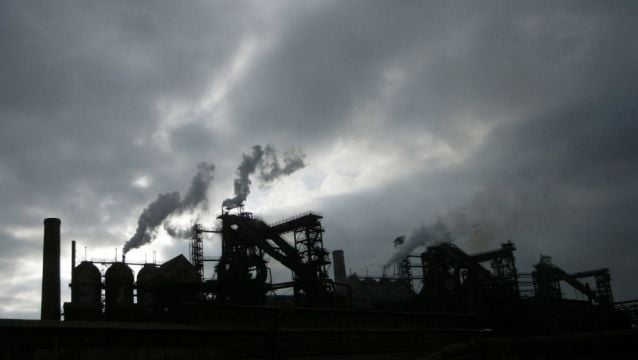President Vladimir Putin claimed victory in the biggest battle of the Ukraine war on Thursday, declaring the port of Mariupol "liberated" after nearly two months of siege, despite leaving hundreds of defenders still holed up inside a giant steel works.
Ukraine said Putin's attempt to avoid a final clash with its forces in the city was an acknowledgement that he lacked the forces to defeat them.
The decision not to storm the Azovstal steel plant - after days of ordering its defenders to surrender or die - falls short of the unambiguous victory Moscow has sought after months of brutal combat in a city reduced to rubble.
"They physically cannot take Azovstal, they have understood this, they have taken huge losses there," Ukrainian presidential adviser Oleksiy Arestovych told a briefing. "Our defenders continue to hold it."
The Azovstal iron and steel works, one of Europe's biggest metallurgical plants, has become an aptly apocalyptic redoubt for Ukrainian forces who are outgunned, outnumbered and surrounded seven weeks into Russia's invasion of Ukraine.
In the east of the southern port devastated by weeks of shelling, the plant lies in an industrial area that looks out to the Sea of Azov and covers more than 11 kms, containing myriad buildings, blast furnaces and rail tracks.
"The Azovstal factory is an enormous space with so many buildings that the Russians ... simply can't find (the Ukrainian forces)," said Oleh Zhdanov, a military analyst based in Kyiv.
In peace time, the Azovstal iron and steel works pumped out 4 million tonnes of steel a year, 3.5 million tonnes of hot metal and 1.2 million tonnes of rolled steel.
The city's defenders include Ukrainian marines, motorised brigades, a National Guard brigade and the Azov Regiment, a militia created by far-right nationalists that was later incorporated into the National Guard.
It is the Azov Regiment, whose destruction is among Moscow's war objectives, that is prominently associated with Azovstal and one of its founders, Andriy Biletskiy, has also called it "the fortress of the Azov".
Like the city's other Illich Steel and Iron Works, Azovstal is held by Metinvest, the group controlled by billionaire Rinat Akhmetov, Ukraine's richest man.
Akhmetov has seen his business empire shattered by eight years of fighting in Ukraine's east but remains defiant, sure that what he calls "our brave soldiers" will defend the Sea of Azov city reduced to a wasteland by weeks of bombardment.
"Mariupol is a global tragedy and a global example of heroism. For me, Mariupol has been and will always be a Ukrainian city," Akhmetov said in written answers to questions.
"I believe that our brave soldiers will defend the city, though I understand how difficult and hard it is for them," he said.
Metinvest said it would never operate under Russian occupation and that the Mariupol siege had disabled more than a third of Ukraine's metallurgy production capacity. - Reuters







